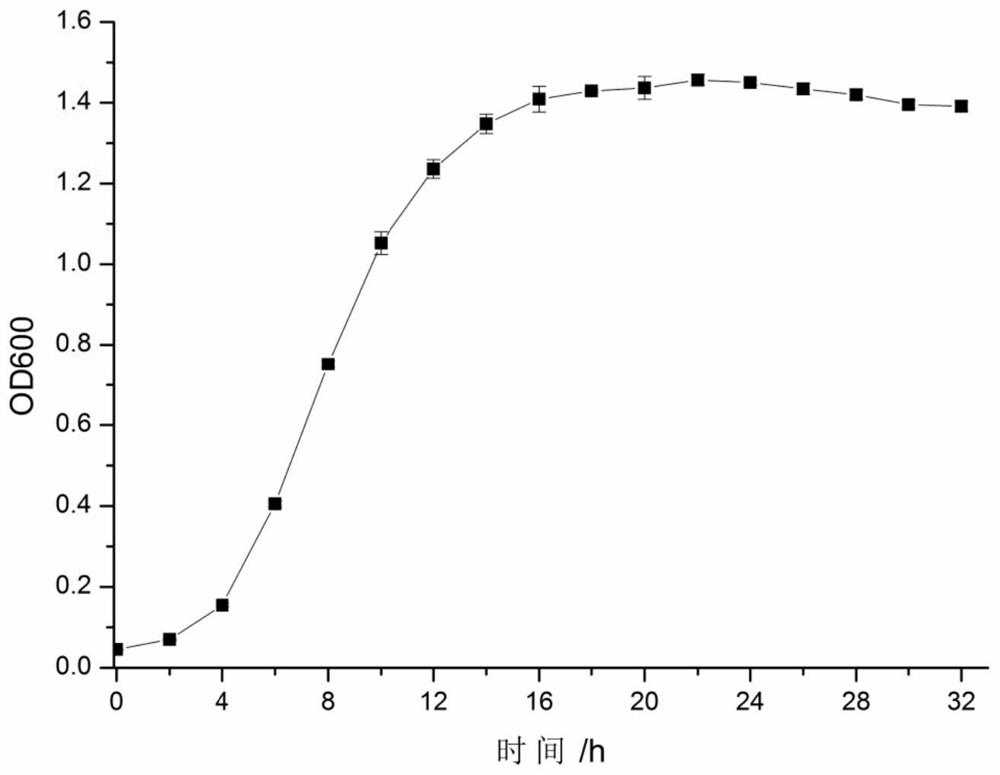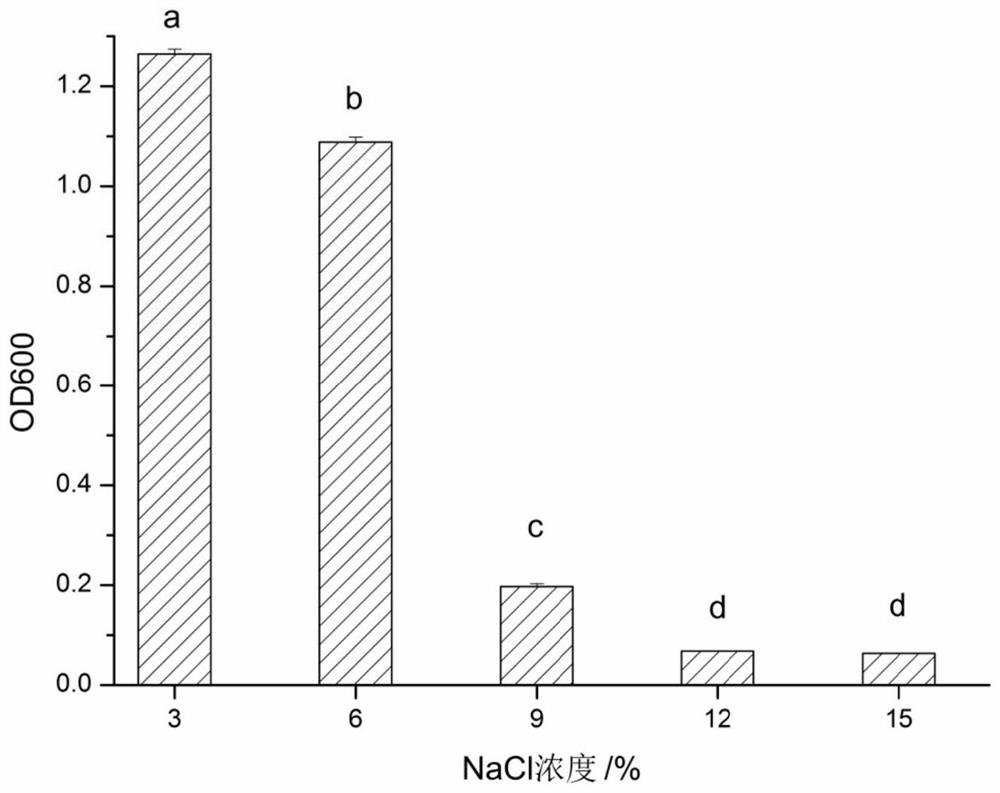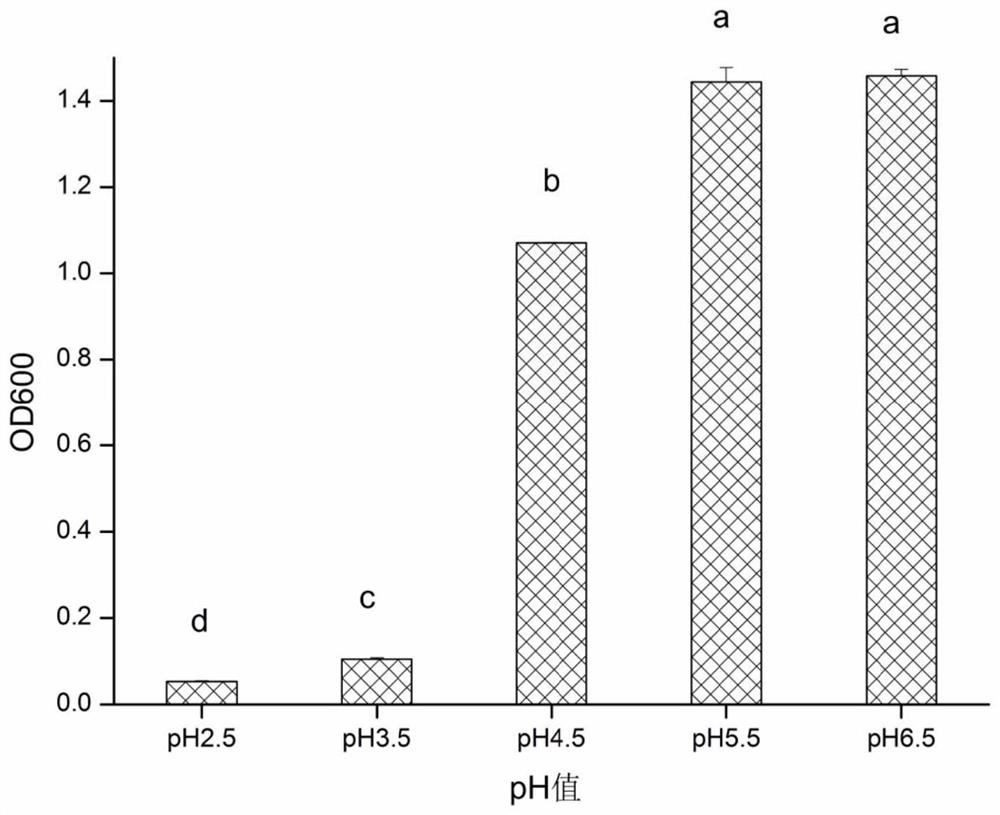Lactobacillus plantarum cq02-108 and its application in the preparation of fermented sausage
A technology of Lactobacillus plantarum and starter, applied in the field of microorganisms, can solve the problems of long fermentation cycle, easy to be limited by climate, difficult to guarantee product safety and quality, etc., to inhibit growth, reduce the risk of spoilage and mildew, The effect of improving flavor and quality
- Summary
- Abstract
- Description
- Claims
- Application Information
AI Technical Summary
Problems solved by technology
Method used
Image
Examples
Embodiment 1
[0044] Embodiment 1: the screening of bacterial strain
[0045] The specific implementation steps of the screening method are as follows:
[0046] 1. Sample collection
[0047] The original samples were collected from traditional naturally fermented sausages purchased from the vegetable market in Chongqing.
[0048] 2. Isolation of lactic acid bacteria from samples
[0049] Cut 25g sausage sample into pieces under aseptic conditions, dissolve in 225mL sterile normal saline, mix well, let it stand for a few minutes, after the minced meat is completely precipitated, take the supernatant and gradually dilute it by 1:10, choose the appropriate dilution 100ul of the bacterial solution was evenly spread on the MRS solid medium added with calcium carbonate, and cultured in an anaerobic incubator at 37°C for 48h. Pick independent single colonies with different shapes, calcium-dissolving circles, and conforming to the morphological characteristics of lactic acid bacteria colonies on...
Embodiment 2
[0060] Embodiment 2: Lactobacillus plantarum CQ02-108 bile salt tolerance test
[0061] Adjust the bacterial suspension of the strain to be tested to 10 9 CFU / mL. According to the ratio of 1% (V / V), they were respectively inoculated into MRS broth containing 0.1% and 0.3% bile salts, and the control group was composed of MRS broth without bile salts. Incubate anaerobically at 37°C for 24 hours, and measure OD620 by a spectrophotometer at 0.5h intervals. The bile salt tolerance of each strain was based on the time required to increase the OD620 value by 0.3 units.
[0062] The results are shown in Table 2. The time required for CQ02-108 to increase OD620 by 0.3 units in 0.1% bile salts and 0.3% bile salts was significantly lower than that of the other two strains, indicating that CQ02-108 tolerated bile salts The most capable.
[0063] Table 2 Bile salt tolerance results of different strains
[0064]
[0065] Note: Different lowercase letters in the same column indicate...
Embodiment 3
[0066] Embodiment 3: Lactobacillus plantarum CQ02-108 gastric juice resistance test
[0067] Preparation of simulated gastric juice: 0.35 g of pepsin was added to 100 mL of 0.2% sterile saline, and the pH was adjusted to 3.0 with concentrated HCl, filtered and sterilized for later use.
[0068] The strain to be tested was cultured overnight in MRS broth at 37°C, and then inoculated into 5mL gastric juice at an amount of 1% and incubated at 37°C for 3 hours. After digestion in the simulated gastric juice, the number of viable bacteria (log10cfu / mL) of each bacterial strain was measured by plate counting method, and the survival rate was calculated, survival rate (%)=3h viable bacteria number / 0h viable bacteria number×100%.
[0069] The results are shown in Table 3. All three strains have good tolerance to gastric juice. After 3 hours of simulated digestion, the number of viable bacteria can still reach 10 7 cfu / ml, the survival rate of CQ02-108 was significantly higher than th...
PUM
 Login to View More
Login to View More Abstract
Description
Claims
Application Information
 Login to View More
Login to View More - R&D
- Intellectual Property
- Life Sciences
- Materials
- Tech Scout
- Unparalleled Data Quality
- Higher Quality Content
- 60% Fewer Hallucinations
Browse by: Latest US Patents, China's latest patents, Technical Efficacy Thesaurus, Application Domain, Technology Topic, Popular Technical Reports.
© 2025 PatSnap. All rights reserved.Legal|Privacy policy|Modern Slavery Act Transparency Statement|Sitemap|About US| Contact US: help@patsnap.com



